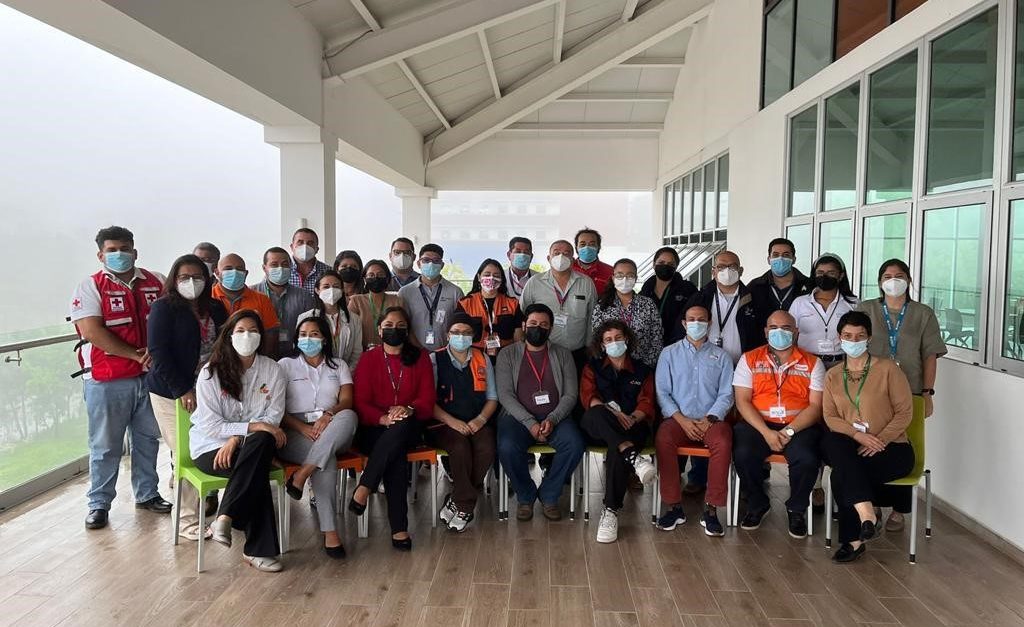WASH workshops in El Salvador: Successes and lessons learned
SIWI conducted two workshops for UNICEF El Salvador, using new indicators and tools to enhance WASH services during emergencies and in schools (WinS). These workshops provided valuable new knowledge.

| Two workshops with in-depth discussions and reflections, ended with fresh ideas and excitement around WASH. Facilitated by SIWI experts in close collaboration with UNICEF’s El Salvador Office, the workshops provided the most recent knowledge on WASH.
The WASH-Emergency Cluster Workshop took place from 26-27 September 2022 at the World Vision El Salvador Office, aimed at strengthening the integration of the Humanitarian Country Team (HCT) group – WASH cluster participating institutions in El Salvador. The workshop strengthened their accountability processes, in addition to supporting the development of a work plan for the Humanitarian Response Plan (HRP) 2023-25 for WASH in emergencies. The specific objectives of the workshop were to:
A total of 32 participants from the HCT group – WASH cluster participating institutions took part in the 2-day workshop. The workshop was carried out with methodologies and tools specifically adapted to achieve the objectives described, and was organized into three working groups (preparedness, emergency, and recovery); as well as in plenary sessions, where the conclusions of each working group were shared and validated. During the first day, the participants worked in groups to:
On the second day, based on the six cluster core coordination functions, the preparedness, emergency, and recovery groups discussed and defined the main strategic lines and actions for each function, which would serve as inputs to define the 2023-25 HCT group – WASH cluster work plan. As a result of the workshop, each group defined a maximum of three activities to be carried out by coordination function, identifying the main responsible parties, the coordination mechanisms and the challenges that could affect the fulfilment of the WASH Cluster objectives. To close the workshop, the participating institutions shared in plenary some limitations and challenges presented for their active participation in the HCT group – WASH cluster, acknowledging the important work that UNICEF does in promoting the group´s coordination and the involvement of other key institutions/organizations. Next steps were also discussed. The second Data Collection Instruments Workshop followed on 28-29 September 2022. It was part of the work that was carried out with the Ministry of Education in the revision of its monitoring tools for follow-up of WinS indicators. Specifically, the work was carried out with the Directorate of Infrastructure and Educational Environments, the Directorate of Educational Counselling and Child Development, the Directorate of Planning, and the Directorate of Innovation and Technology. The objectives of the workshop were:
During the first day of the workshop, the participants considered the instrument (survey) and indicators used by each of the institutions (Directorates) for the collection and analysis of WASH indicators in schools. The activity looked in depth at which indicators were collected, what was the objective/what were they used for, which indicators could be improved, which indicators were missing, and which indicators were not necessary. For the analysis of the instrument (survey), the RACI (responsible, accountable, consulted, and informed) methodology was used. After this exercise, SIWI´s team reviewed the results to identify the most common indicators to the four collection instruments, and the specific indicators to each area of work. During the second day, the outcome of common/specific indicators was presented, and the best mechanisms for the collection, analysis and dissemination of indicators were discussed to make the processes more efficient. The working group considered next steps and the need to have an indicator sheet which will include detailed definitions and collection and analysis mechanisms for each indicator. SIWI is providing support with this exercise. In conclusion, the implementation of the methodologies was a success, and they were easy to follow for the participants. The same methodologies will be useful for SIWI’s upcoming workshops of this kind in other regional countries. Furthermore, raising the importance of frequent HCT group – WASH cluster meetings in regular times and not only during a crisis or emergency has been remarked by the HCT group as crucial for a better coordination process. The permanent participation of key governmental institutions is as well a very important component in the coordination efforts. |







